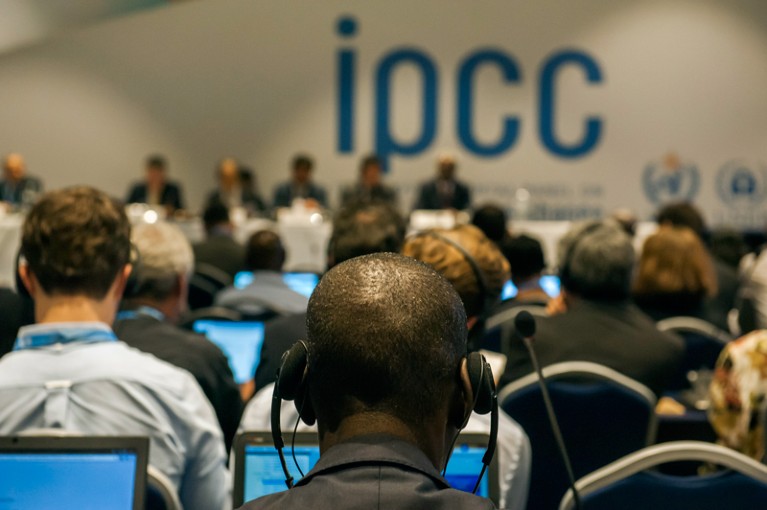
Synthesis of evidence on climate and other scientific topics must be encouraged.Credit: Hector Guerrero/AFP/Getty
The idea that scientists can see to make discoveries only because they stand on the shoulders of giants was popularized by Isaac Newton. Fittingly, he borrowed the idea from a significant figure who had gone before him, probably the twelfth-century French philosopher Bernard of Chartres. It’s a sound principle: build on previous efforts to seek and find truth. But a vast number of previous discoveries are now captured in an overwhelmingly large body of literature — so what is a modern truth-seeker to do?
Four principles to make evidence synthesis more useful for policy
One strategy is to distil knowledge in a way that empowers those needing to resolve a practical solution. This comes in many forms — from the regular, heroic efforts of the Intergovernmental Panel on Climate Change to the ad-hoc assessments done urgently to help steer decisions on political or environmental crises. Other efforts — largely by not-for-profit organizations committed to evidence-based assessment — are driven by a need to ensure that the best possible outcomes will follow any intervention. The Cochrane reviews (go.nature.com/2jqocex) exemplify this assessment for best practice in health contexts, and the Campbell reviews (go.nature.com/2k86p1p) do so in social, educational and behavioural contexts.
As societal challenges grow in research priority, there is ever more need for such synthesis. But it takes effort, as described by, for example, a Cornell University Library guide to a systematic review (go.nature.com/2k6ftil). And, more problematically, the academic ecosystem does not incentivize such work.
A fresh approach to evidence synthesis
To help nudge the system in that direction, Nature this week publishes two Comment articles that highlight the importance of such assessments of evidence, and suggest ways to maximize their effectiveness. In the first, several experts from policy, funding and publishing (including Nature’s editor-in-chief) present four principles to help make evidence syntheses aimed at policymakers easier to commission, and more powerful in delivery and implementation. The second, by two researchers who focus on evidence for conservation biology, discusses a form of evidence synthesis that can provide a more cost-effective way to appraise evidence when data are sparse and patchy. This is a reflection of the reality that, for some interventions, randomized controlled trials aren’t possible, but there is, nevertheless, a need to make sense of the available evidence.
More scientists should identify fields for which such an exercise is necessary (or will be soon) and, after proper consultation with policymakers on what questions are most relevant, they should produce a useful assessment of the evidence. We hope that these articles will encourage researchers, and their institutions, funders and publishers, to recognize the benefits that good syntheses of knowledge will provide.

 Four principles to make evidence synthesis more useful for policy
Four principles to make evidence synthesis more useful for policy
 A fresh approach to evidence synthesis
A fresh approach to evidence synthesis
 The art of science advice to government
The art of science advice to government


